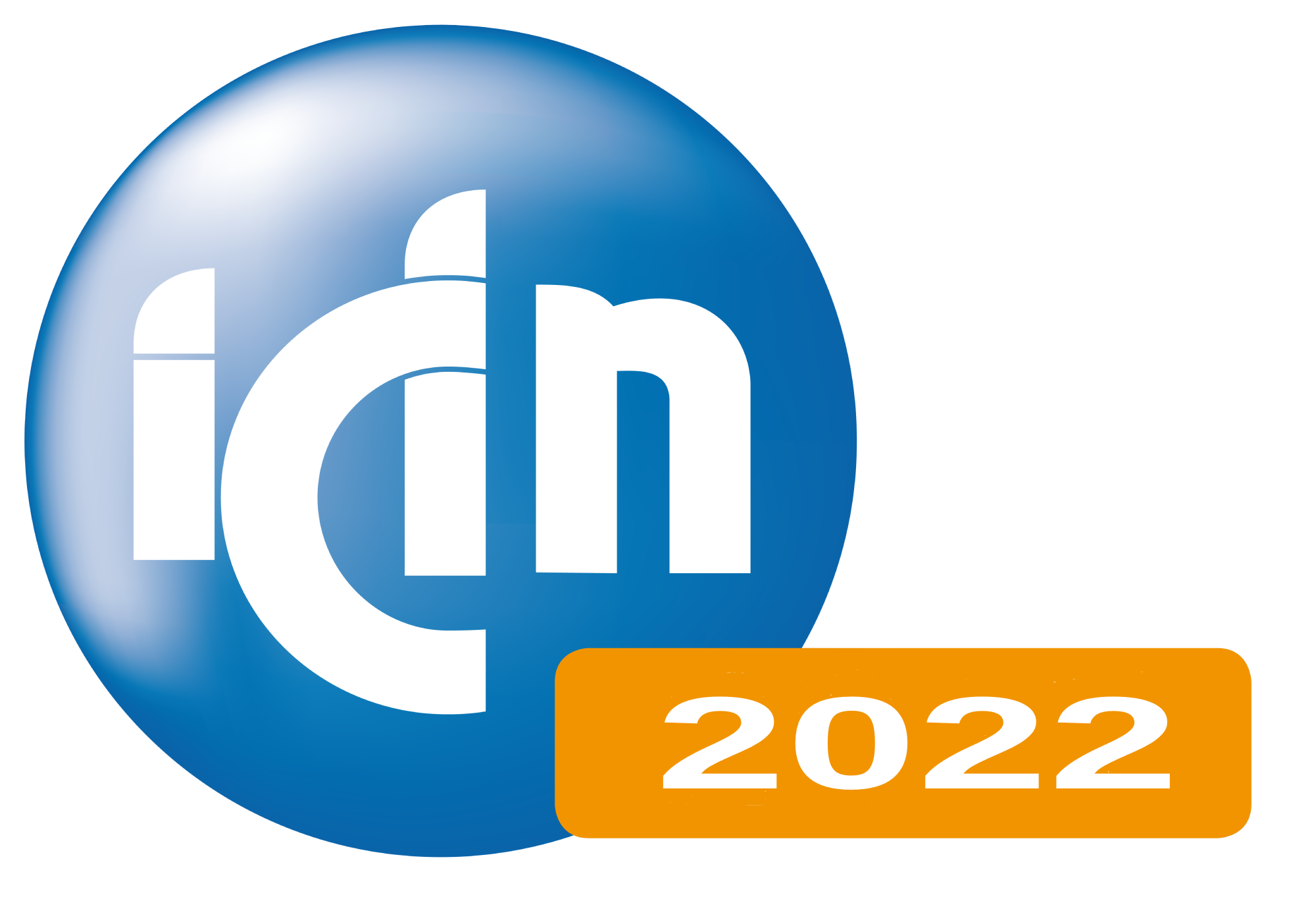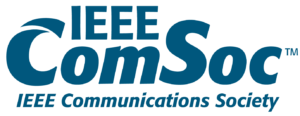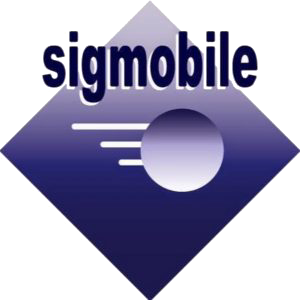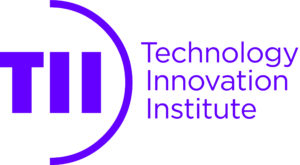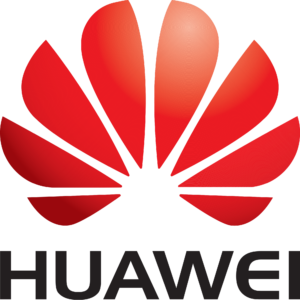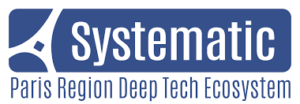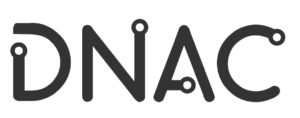ICIN 2022 Keynotes
Keynote #1
Title: Connecting the Metaverse: In-Network Computing as Infrastructure
Abstract: Ubiquitous virtual reality environments such as Metaverse have been described as the future mobile Internet, alluding to their expected profound impact on the way how information is retrieved, processed, rendered, and consumed. While detailed designs are still emerging, early visions such Keeichi Matsuda’s Hyper-Reality project have already outlined usage models and expectations on connectivity and data availability to enable rich interactions with the physical world and blending it with dynamically computed artefacts. Metaverse systems will challenge traditional client-server-inspired web models, centralized security trust anchors and server-style distributed computing. The new network will be based on dynamic interactions between humans, the phyiscal world, and computing processes in an edge-to-cloud continuum. This talk will outline the associated challenges, review recent work in distributed computing and suggest some approaches for evolving networking and computing to enable Metaverse – not as a dystopian vision but as an opportunity for societies and their citizens.
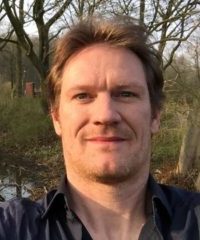
Dirk Kutscher
(University of Applied Sciences Emden/Leer, Germany)
Bio: Prof. Dirk Kutscher is a professor for computer science and networking at the University of Applied Sciences Emden/Leer. Recently, Dirk has initiated a new research direction called “Compute-First Networking” towards re-imaging the relationship of networking and computing. Dirk has held leading positions in multiple Future Internet Research projects and is currently serving as the technical director for the Piccolo project, a new European research initiative on in-network computing.
Previously he has been the CTO for Virtual Networking and IP at Huawei’s German Research Center, the Chief Researcher for Networking at NEC Laboratories Europe, and a Visiting Researcher at KDDI R&D Laboratories in Japan. He is co-chairing two Research Groups in the Internet Research Task Force (IRTF) on Information-Centric Networking (ICNRG) and on Decentralized Internet Infrastructure (Proposed DINRG). Dirk has published several IETF RFCs, books, and research publications on Internet technologies. He has a PhD from Universität Bremen.
Keynote #2
Title: Carbon-responsive computing: How to get there from here?
Abstract: At present, the Information/Communication Technology (ICT) industry’s consumption of electricity is estimated to be 2-3% of all electricity generated, with some predicting significant increases within the decade. Although data centers are well known as sizeable consumers, the impact of the networking infrastructure is actually as large or larger than DCs. While one strategy has been to innovate around efficient electricity usage and reductions, an alternative tactic of growing importance has been to ensure that the energy consumed is of low carbon intensity, i.e., generated from renewables such as solar, wind, or other clean energy technologies. With ambitious sustainability goals being demanded by regulators, customers, investors, and society, this talk will present the case for carbon-responsive computing, the notion that ICT resources and systems of all kinds (PCs, servers, electric vehicles, IoT devices, base stations, network routers, edge-to-cloud DCs) collaborate with the shared goal to decrease the collective carbon footprint, prioritizing the usage of resources exacting the least carbon intensity. This talk will outline the trends that suggest the need for such an imperative. With the edge-ification of both the Internet and the electrical grid simultaneously underway, this talk will highlight the building blocks under development, discuss research and standards that will underpin such an initiative, and ultimately present the challenges and opportunities en route to a sustainable edge-cloud infrastructure.
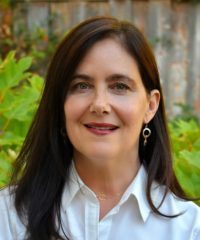
Eve M. Schooler
(Intel, USA)
Bio: Eve M. Schooler is a Principal Engineer and Director of Emerging IoT Networks at Intel. Her current work focuses on evolving the Internet toward a sustainable edge-cloud infrastructure. An expert in networking and distributed systems, Eve serves in leadership positions in the IETF, currently serving on the IoT Directorate, co-chairing the Reliable & Available Wireless (RAW) WG to enable L3 deterministic networks, and the Computing-in-the-Network (COIN) RG to investigate network-compute-storage convergence. While at Intel, she has led R&D on a range of topics including collaborative anomaly detection for network security, energy efficiency in Smart Homes, data privacy-preservation in the Smart Grid, data-centric networks, and reverse CDNs for upstream video flows.
She obtained a BS from Yale, MS from UCLA, and PhD from Caltech, all in Computer Science. She sits on the Board of the Computing Research Association. She is an IEEE Fellow and the co-recipient of the 2020 IEEE Internet Award for her work on control protocols for Internet telephony and multimedia teleconferencing.
Keynote #3
Title: Conceiving a Meta Operating System for Distributed Applications
Abstract:
Many mainstream applications rely on some form of edge computing and edge storage, mostly realised as hyperscaler cloud extensions for applications such as video on demand (such as youTube and Netflix) and, more generally, as CDN platforms that combine caching with limited forms of programmability, such as Cloudflare’s edge computing platform. Whereas a necessity, there are significant barriers to ubiquitous and universal distributed application development, as proprietary and verticalised approaches to cache/proxy discovery, traffic steering, overlay forwarding strategies, application programmability.are common, and data sharing and distributed computing functions interconnection is practically impossible.
Therefore, only a shift towards an open meta operating system can allow a permissionless application development, Instead of thinking distributed computing infrastructure from the cloud (or telco network) perspective, we should start from the application perspective and treat in-network computing and its associated innovations as a “first-class citizen”. This will provide an innovative system that is based on realistic requirements and users’ needs.
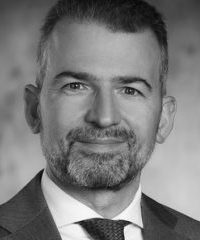
Alessandro Bassi
(THINGS, Czech Republic )
Bio: Alessandro Bassi graduated in Computer Science from the University in Milan. After working in Amadeus for more than three years, he moved to the University of Tennessee in 2000, developing concepts that became mainstream years later (such as Cloud Storage). After working one year for RIPE NCC, in November 2004 he joined Hitachi Europe, where he lead a team on Cloud Storage, RFID, and IOT.
In September 2010 he became an Independent Consultant, working on topics related to Internet of Things and Cloud technologies, He was a member of the IoT Expert Group, nominated by the European Commission (2010-2012). Furthermore, he serves in the EU-China and EU-Taiwan Advisory Group, to harmonise research roadmaps. He was is the Technical Coordinator of the lighthouse project regarding the Internet of Things in the Framework Programme 7, ‘Internet of Things – Architecture” (IoT-A). He is the president of IoT Italy, the Italian association for IoT.
In 2019 he joined THINGS, bringing in its expertise in IoT Technologies and Product Definition.
Keynote #4
Title: 5G and beyond: Bringing the world together?
Abstract: Mobile services have played an enormous role in bringing the world together – helping us all to communicate with one another, facilitating global commerce and GDP growth, and helping to mitigate the digital divide between rich and poor. New generations of mobile services emerging at intervals of roughly ten years have enabled ever more capable services.
Mobile broadband plays a particularly crucial role in many developing countries. Populous, coastal cities are easily served by fixed broadband networks fed by undersea cable, but inland portions of many developing countries have little or no fixed telecommunications network infrastructure, and are unlikely to have a modern fixed telecommunications network any time soon. In these regions, the mobile network is the main or only network, and it consequently plays an outsize role in the modernisation and digitalisation of the broader society.
In order to fulfil the promise of the mobile ecosystem, a globally integrated mobile ecosystem is important. Coherent, integrated global standards leading to integrated global supply chains promote global competition, manufacturing economies of scale and scope that lead in turn to cost-effective deployment of modern networks, and full interoperability. All of these help to promote faster global availability, and gradual reduction of digital divides between richer and poorer regions, countries, and individuals.
But an integrated mobile ecosystem does not happen automatically. Instead of a single fully interoperable 3G standard, commercial rivalries led to multiple mutually incompatible forms of 3G, leading to mutually incompatible deployments in different parts of the world. With 4G and again with 5G, we have a coherent structure at the level of technical standards; however, we are increasingly witnessing a fragmentation of global supply chains for 5G for a variety of reasons, notably including geopolitical rivalries and corresponding secondary sanctions.
It is very early days for 6G, but it is not too early to begin to speculate on what measures might be in order so as to promote the emergence of a single coherent standard coupled with efficient global supply chains.
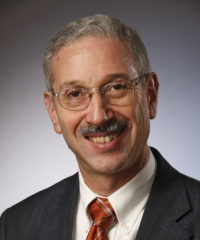
J. Scott Marcus
(Bruegel, Belgium)
Bio: Bruegel is an independent economic think tank. It seeks to contribute to European and global economic policymaking through open, fact-based and policy-relevant research, analysis and debate. Bruegel‘s unique governance and funding model is composed of memberships from EU governments, leading international corporations and institutions.
Keynote #5
Title: Transport layer for the Next Internet?
Abstract: Recent evolutions on the transport layer have tried to find the finely tuned operation point where the delay is minimized and the capacity is maximized. However, converging to this operating point has been rather elusive. There is a body of literature on configuring the proper parameters of a transport session or on measuring the impact of buffering in the latency, or on teasing out the interactions of multiple flows sharing a bottleneck. In this keynote, it will be argued that novel techniques should be considered to properly find the proper transmission rate of a transport session, including partially reliable transport protocols.

Cedric Westphal
(Futurewei, USA)
Bio: Cedric Westphal is a Principal Research Architect with Futurewei working on future network architectures, both for wired and wireless networks. His current focus is on next generation Internet. He was an adjunct assistant, then associate professor with the University of California, Santa Cruz from 2009 to 2019. Prior to Futurewei, he was with DOCOMO Innovations from 2007 to 2011 in the Networking Architecture Group focusing on next generation network architectures. He was at Nokia Research Center (now Nokia Bell Labs) from 2000 to 2006.
He has received a MSEE in 1995 from Ecole Centrale Paris, and a MS (1995) and PhD (2000) in EE from the University of California, Los Angeles. From 1997 to 2000, he was a visiting researcher at Stanford University. Cedric Westphal has authored and coauthored over a hundred journal and conference papers, including several best paper awards at conferences such as IEEE ICC’11, IEEE ICNC’18, IEEE MuSIC’16 and others. He has been awarded over thirty patents. He has received the IEEE Communication Society IINTC 2018 Technical Achievement Award to “recognize a lifelong set of outstanding technical contributions in the area of information infrastructure and networking.”
He was an area editor for the ACM/IEEE Transactions on Networking, an assistant editor for (Elsevier) Computer Networks journal, and a guest editor for Ad Hoc Networks journal and ACM/IEEE JSAC. He has served as a reviewer for the NSF, GENI, the EU FP7, INRIA, and other funding agencies; he has chaired the technical program committee of several conferences, including IEEE ICC (NGN symposium), IEEE NFV-SDN or IEEE IPCCC, and he was the general chair for IEEE INFOCOM 2016. He is a senior member of the IEEE.
Keynote #6
Title: Edge Intelligence: Challenges and Opportunities
Abstract: Fueled by the availability of more data and computing power, recent breakthroughs in cloud-based machine learning (ML) have trans[1]formed every aspect of our lives from face recognition and medical diagnosis to natural language processing. However, classical ML exerts severe demands in terms of energy, memory and computing resources, limiting their adoption for resource constrained edge devices. The new breed of intelligent devices and high-stake applications (drones, augmented/virtual reality, autonomous systems, etc.), requires a novel paradigm change calling for distributed, low-latency and reliable ML at the wireless network edge (referred to as edge ML). In this talk, we will discuss the challenges and opportunities offered by Edge AI Networks.
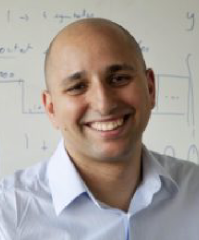
Merouane Debbah
(Chief Research Officer, Technology Innovation Institute, Abu Dhabi, UAE)
Bio: Mérouane Debbah received the M.Sc. and Ph.D. degrees from the Ecole Normale Supérieure Paris-Saclay, France. He was with Motorola Labs, Saclay, France, from 1999 to 2002, and also with the Vienna Research Center for Telecommunications, Vienna, Austria, until 2003. From 2003 to 2007, he was an Assistant Professor with the Mobile Communications Department, Institut Eurecom, Sophia Antipolis, France. In 2007, he was appointed Full Professor at CentraleSupelec, Gif-sur-Yvette, France. From 2007 to 2014, he was the Director of the Alcatel-Lucent Chair on Flexible Radio. From 2014 to 2021, he was Vice-President of the Huawei France Research Center. He was jointly the director of the Mathematical and Algorithmic Sciences Lab as well as the director of the Lagrange Mathematical and Computing Research Center.
Since 2021, he is Chief Research Officer at the Technology Innovation Institute in Abu Dhabi where he leads jointly the AI and Telecommunication centers. He is also Adjunct Professor at the Mohamed bin Zayed University of Artificial Intelligence in Abu Dhabi. Mérouane Debbah has managed 8 EU projects and more than 24 national and international projects. His research interests lie in fundamental mathematics, algorithms, statistics, information, and communication sciences research. He is an IEEE Fellow, a WWRF Fellow, a Eurasip Fellow, an AAIA Fellow, an Institut Louis Bachelier Fellow and a Membre émérite SEE. He was a recipient of the ERC Grant MORE (Advanced Mathematical Tools for Complex Network Engineering) from 2012 to 2017. He was a recipient of the Mario Boella Award in 2005, the IEEE Glavieux Prize Award in 2011, the Qualcomm Innovation Prize Award in 2012, the 2019 IEEE Radio Communications Committee Technical Recognition Award and the 2020 SEE Blondel Medal.
He received more than 20 best paper awards, among which the 2007 IEEE GLOBECOM Best Paper Award, the Wi-Opt 2009 Best Paper Award, the 2010 Newcom++ Best Paper Award, the WUN CogCom Best Paper 2012 and 2013 Award, the 2014 WCNC Best Paper Award, the 2015 ICC Best Paper Award, the 2015 IEEE Communications Society Leonard G. Abraham Prize, the 2015 IEEE Communications Society Fred W. Ellersick Prize, the 2016 IEEE Communications Society Best Tutorial Paper Award, the 2016 European Wireless Best Paper Award, the 2017 Eurasip Best Paper Award, the 2018 IEEE Marconi Prize Paper Award, the 2019 IEEE Communications Society Young Author Best Paper Award, the 2021 Eurasip Best Paper Award, the 2021 IEEE Marconi Prize Paper Award as well as the Valuetools 2007, Valuetools 2008, CrownCom 2009, Valuetools 2012, SAM 2014, and 2017 IEEE Sweden VT-COM-IT Joint Chapter best student paper awards.
He is an Associate Editor-in-Chief of the journal Random Matrix: Theory and Applications. He was an Associate Area Editor and Senior Area Editor of the IEEE TRANSACTIONS ON SIGNAL PROCESSING from 2011 to 2013 and from 2013 to 2014, respectively. From 2021 to 2022, he serves as an IEEE Signal Processing Society Distinguished Industry Speaker.
